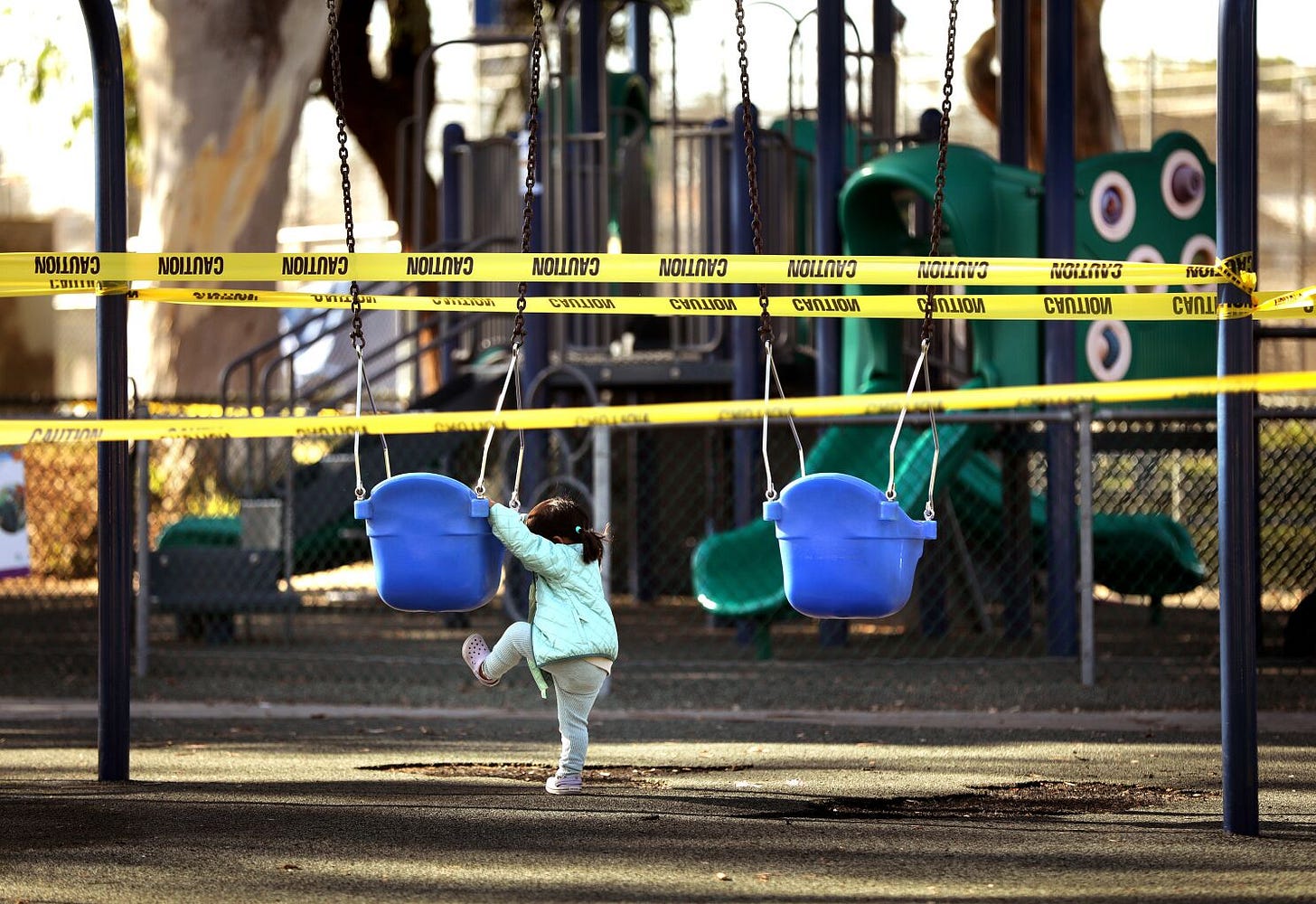Against "pandemic amnesty" in favor of something better
Don't be cruel. But don't let people off the hook either.
Brown University Prof. Emily Oster wants what she calls a “pandemic amnesty,” which she styles as a gentle forgiveness of the hardline positions a lot of people took about COVID over the past few years. As she tells it, everyone was working with “imperfect knowledge” and so shouldn’t be held responsible for the wildly incorrect decisions, and demands they made of other people, at the time:
In the face of so much uncertainty, getting something right had a hefty element of luck. And, similarly, getting something wrong wasn’t a moral failing. … Let’s acknowledge that we made complicated choices in the face of deep uncertainty, and then try to work together to build back and move forward.
I do not recall Oster being the most hysterical and unhinged of COVID respondents, so I suspect this plea is modestly less self-serving than others have suggested (though I still think it’s pretty self-serving). Yet there are two issues with the way she present this argument:
There really wasn’t ever that much “uncertainty” about COVID. Honestly. It was clear from pretty much late March of 2020 onward that this virus overwhelmingly attacks older, sicker people. The risks it poses to younger and/or healthier people are extremely minimal. New research by Ioannidis et al suggests an infection fatality rate of 0.082% for people under 70. This was knowable and understandable within the first quarter of 2020. All you had to do was, you know, read the data. It wasn’t a matter of “luck,” it was a matter of being able to study a few pop distribution charts and draw completely reasonable conclusions from them.
Had politicians, health officials and civic leaders actually acknowledged this data, the pandemic response would have been comprehensively different (and better) than it ended up being. But pretty much none of them did that and so here we are. We should reject the idea that the people who have been right about this for the past two-and-a-half years were the beneficiaries of “luck.” We weren’t. We just, you know, read stuff.This complicates Oster’s claims that wrongness about the pandemic was not in and of itself a “moral failing.” That really depends upon what we’re talking about here. Being irrationally scared and hysterical about a thing is not intrinsically a “moral failing” in many circumstances. Yet when it’s (a) driven by willful ignorance, and (b) coupled with harmful behavior, it demands a different calculation.
That’s basically what happened here. Many, many people refused to research the very basic and intelligible data on COVID-19; many of those same people also demanded and imposed ruinous school closures, devastating business shutdowns, isolating social policies, idiotic and awful masking rules, a general climate of sheer unadulterated anti-scientific paranoia and derangement. A great many people over the past 18 months similarly led vicious and unhinged campaigns against “the unvaccinated,” demanding the near-total ostracizing and condemnation of their friends and neighbors if they didn’t get an experimental pharmaceutical injection that we now know doesn’t really do the things they insisted it would. Huge swaths of society became hateful, cruel, relentless, unforgiving; they did this, again, because they actively refused to look at or even consider countervailing information that would challenge their own hysterical assumptions. All of that surely constitutes a moral failing on a massive scale.
So the issue is not as simple as “just forgive everyone and move on.” Forgiveness is a necessary component here—we should always be moving towards forgiveness, at all times, in everything—but merely “moving on” would be deeply inadvisable, at least if we don’t want anything like this to happen again, which I hope most of us don’t. We need to consider several other critical factors at play here, namely: Which people should suffer consequences for the willful destruction and misery they wrought over the course of this crisis? And what kind of consequences, and for how long? What does justice look like in this context? And to what ends?
These are all necessary things on which we should be actively reflecting and working toward. It is simply not enough to declare “Whoops!” and just keep going. Terrible, terrible things have been done here and it would be suicidally ridiculous to propose that we just forget all about it and move on. Let’s not do that.



